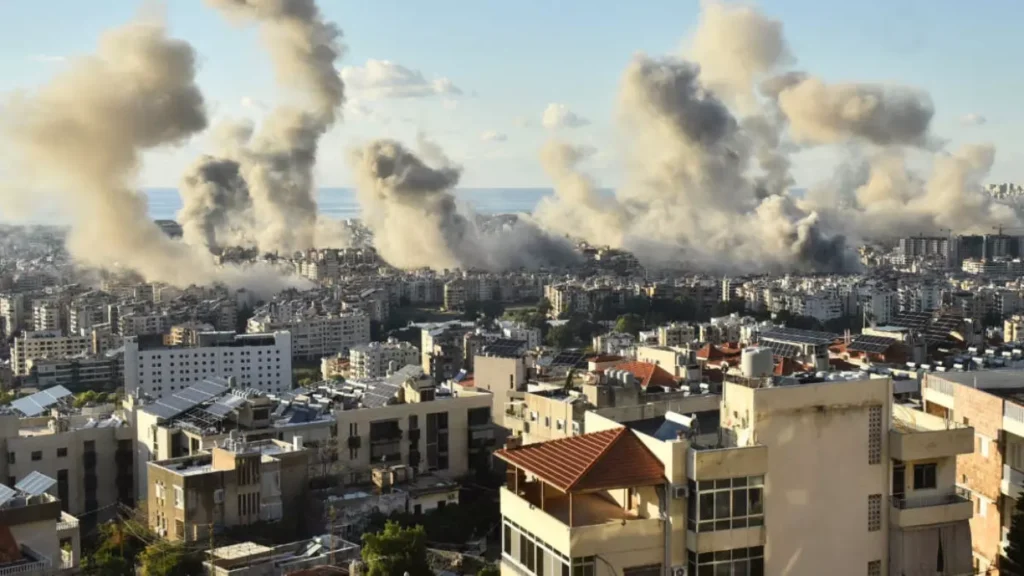Agencies_ Hezbollah has agreed to a ceasefire with Israel, which will take effect on Wednesday 27 November 2024 at 4 a.m. local time (0200 GMT). Both parties accepted an agreement brokered by the United States and France.
The Israeli PM Benjamin Netanyahu who vowed to continue the war of aggression on Lebanon until Hezbollah is dismantled has agreed to stop the war without achieving his declared far-fetched objectives which include among others what so-called a new Middle East.
President Joe Biden said on Tuesday he had spoken to Israel’s Prime Minister Benjamin Netanyahu and Lebanon’s caretaker Prime Minister Najib Mikati.
French President Emmanuel Macron cheered the signing of the deal on social-media platform X, saying it was “the culmination of efforts undertaken for many months with the Israeli and Lebanese authorities, in close collaboration with the United States.”
Just as in 2006 war, Israel has again asked the United States of America to interfere and broker a ceasefire with Hezbollah after Benjamin Netanyahu failed to achieve his objectives. The 2006 war between Israel and Hezbollah lasted 34 days, which clearly exposed the limits of Israeli military power and led to the recognition of its defeat.
Lebanon’s Mikati issued a statement welcoming the deal. Foreign Minister Abdallah Bou Habib earlier said the Lebanese army would be ready to have at least 5,000 troops deployed in southern Lebanon as Israeli troops withdraw.
The United Nations Special Coordinator for Lebanon, Jeanine Hennis-Plasschaert, welcomed the ceasefire deal in a statement, commending the parties to the agreement.
“Now is the time to deliver, through concrete actions, to consolidate today’s achievement.”
Both the Lebanese government and Hezbollah have insisted that a return of displaced civilians to southern Lebanon is a key tenet of the truce.
Reflecting of a state of disappointment and a sense of another defeat in Lebanon, a poll published on Monday by Israeli Channel 14 News, which is sympathetic to Prime Minister Benjamin Netanyahu, showed that 55 percent of the Israeli public opposes the agreement with Lebanon, while 41 percent are in favor.
Benny Gantz, the opposition leader who quit Israel’s war cabinet in June, posted on X: “A good agreement will bring the residents of the north home – a ‘ceasefire’ will bring Hezbollah back.”
“You can’t talk in terms of a ‘temporary ceasefire’. The withdrawal of forces now, and the dynamic that will be created, will make it difficult for us and will make it easier for Hezbollah to regroup,” Gantz said.
Discussing the Channel 14 poll, Yaron Buskila, head of Israel’s Defense and Security Forum, a civilian organization made up of former military personnel affiliated with the Israeli right, said that among its 40,000 members “there is wall-to-wall opposition” to the agreement.
Yossi Yehoshua, Yediot Ahronoth’s reporter for military and security affairs, said: “Whoever clearly wins dictates rules for a ceasefire and if the other side does not accept them, then they continue to crush him. Otherwise it is not a victory and certainly not a complete victory.”
Israeli Security Minister Itamar Ben-Gvir, a right-wing member of Netanyahu’s government, said on X the agreement does not ensure the return of Israelis to their homes in the country’s north and that the Lebanese army did not have the ability to overcome Hezbollah.
“In order to leave Lebanon, we must have our own security belt,” Ben-Gvir said.
